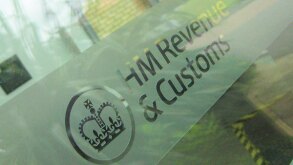The Spanish Supreme Court recently handed down several judgments reiterating and extending its interpretation regarding the fiscal year in which taxpayers should recognise in their corporate income tax returns the income derived from a refund of taxes declared unconstitutional.
In 2010 and 2011, the Supreme Court ruled on cases in which the unconstitutionality of the provision creating a charge supplementing the tax on games of luck had been declared, and the taxpayer had asked when it had to recognise that refund in its corporate income tax return:
In the fiscal year in which it accounted for, and paid, the tax being refunded; or
In the fiscal year in which the refund is received.
The importance of this clarification is undeniable, given that in the first case, the refund could be deemed income relating to a statute-barred year; in which case, it would not be subject to corporate income tax.
In this regard, the Supreme Court (through its judgments 2984/2010, of March 25 2010; 4046/2010, of May 25 2010; 5556/2010, of October 27 2010; 5962/2010, of November 10 2010; and 7340/2011, of November 7 2011) upheld the view that the first alternative was more lawful. Specifically, according to the court, the payment of the tax subsequently declared unconstitutional is incorrect ab initio, in so far as the effects of the unconstitutionality of the provision are not constitutive of the right to a refund of the amount incorrectly paid but are merely declaratory.
This case law on the recognition, for corporate income tax purposes, of a refund of taxes declared unconstitutional was expressly invoked by the Directorate-General of Taxes in its binding ruling V2149-13, in which it stated that refunds of port fees relating to fiscal years 1996 to 2002 that had been declared unconstitutional should be recognised as income in the corporate income tax base of the years in which the taxpayer had deducted those fees as a tax expense, regardless of when the fees had been recognised for accounting purposes.
Nonetheless, the tax inspectors’ interpretation, along with a judgment by another court – namely, National Appellate Court judgment 2988/2021, of June 23 2021 – had generated a certain debate (due to being a questionable interpretation, to say the least) about whether this case law remained in force and whether it could extend to the recognition of refunds of taxes that had been declared contrary to EU law.
As stated above, the Supreme Court has handed down judgments –200/2024, of February 6 2024; 224/2024, of February 8 2024; and 238/2024, of February 12 2024 – concluding that refunds of taxes declared contrary to EU law must be recognised in the corporate income tax base of the fiscal year in which the tax in question was paid, making reference to its case law on refunds of taxes declared unconstitutional, thereby clarifying not only the extension of that criterion but also its absolute validity, in contrast to certain theories invoked by the tax authorities to deny its applicability.
In conclusion, the Supreme Court has appeared to clarify its doctrine regarding the corporate income tax treatment of income obtained by taxpayers as a result of a refund of taxes declared unconstitutional or contrary to EU law. However, it is still important to consider all the nuances of each case, and therefore it is advisable for a tax expert to analyse the appropriate tax treatment of such income.












